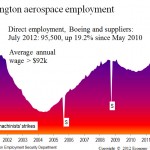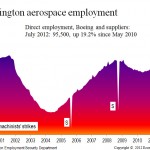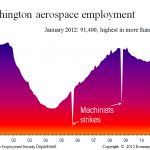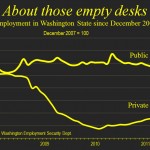
I’ve just updated Boeing related charts for a presentation on September 13. A couple of things worth noting: Even after adjustment for the loss of Qantas 787 orders last month, Boeing’s backlog in units at the end of August was higher than at the end of March. It hasn’t been [continue reading . . . ]


